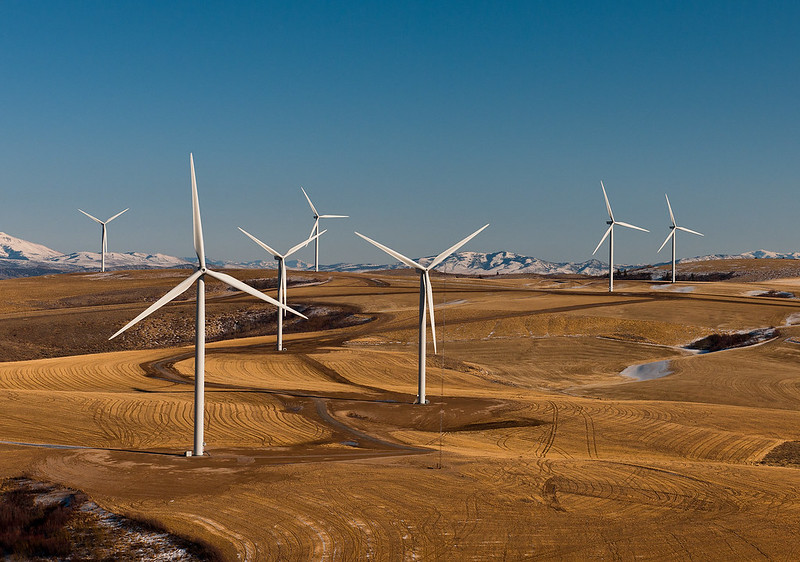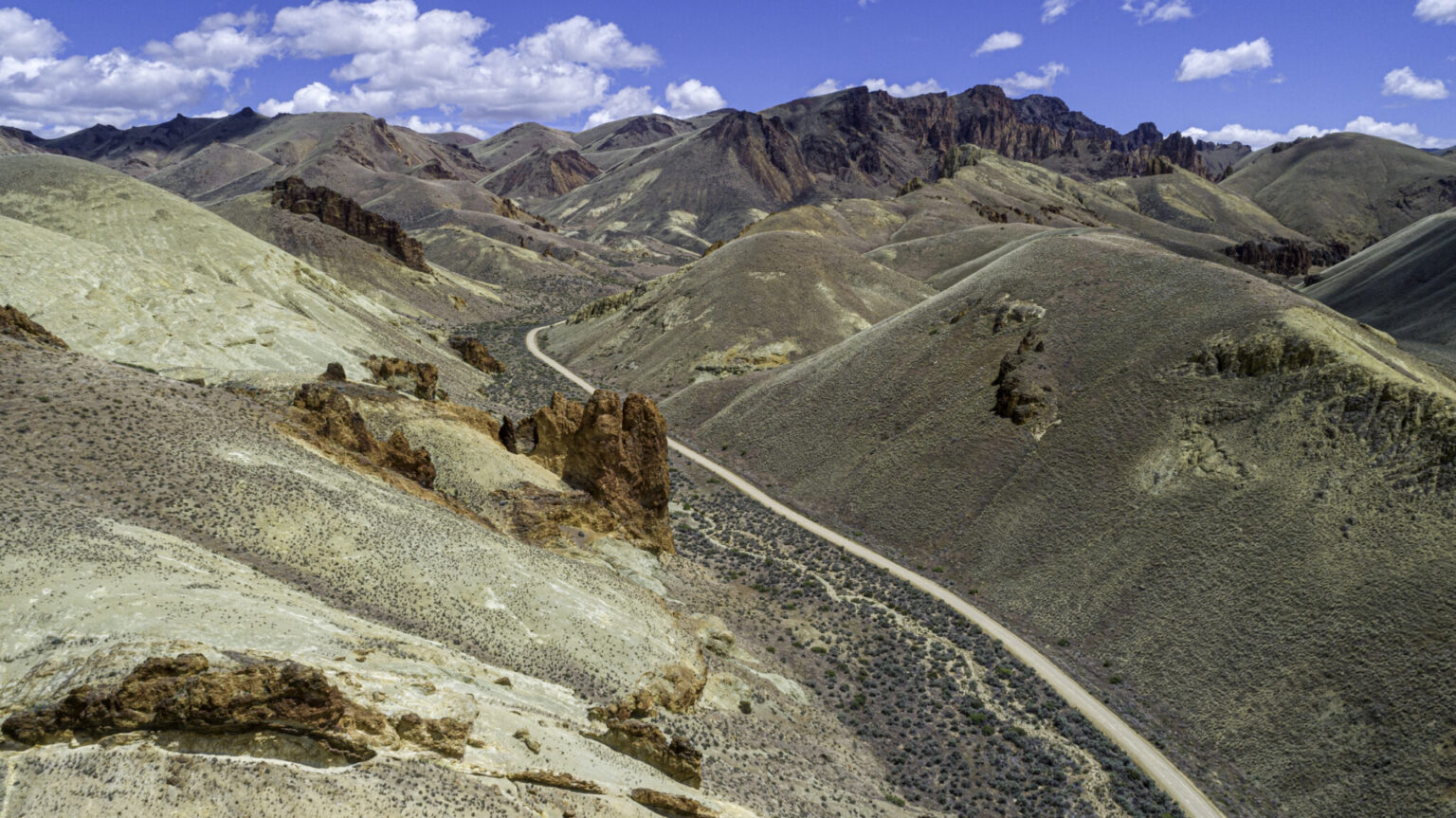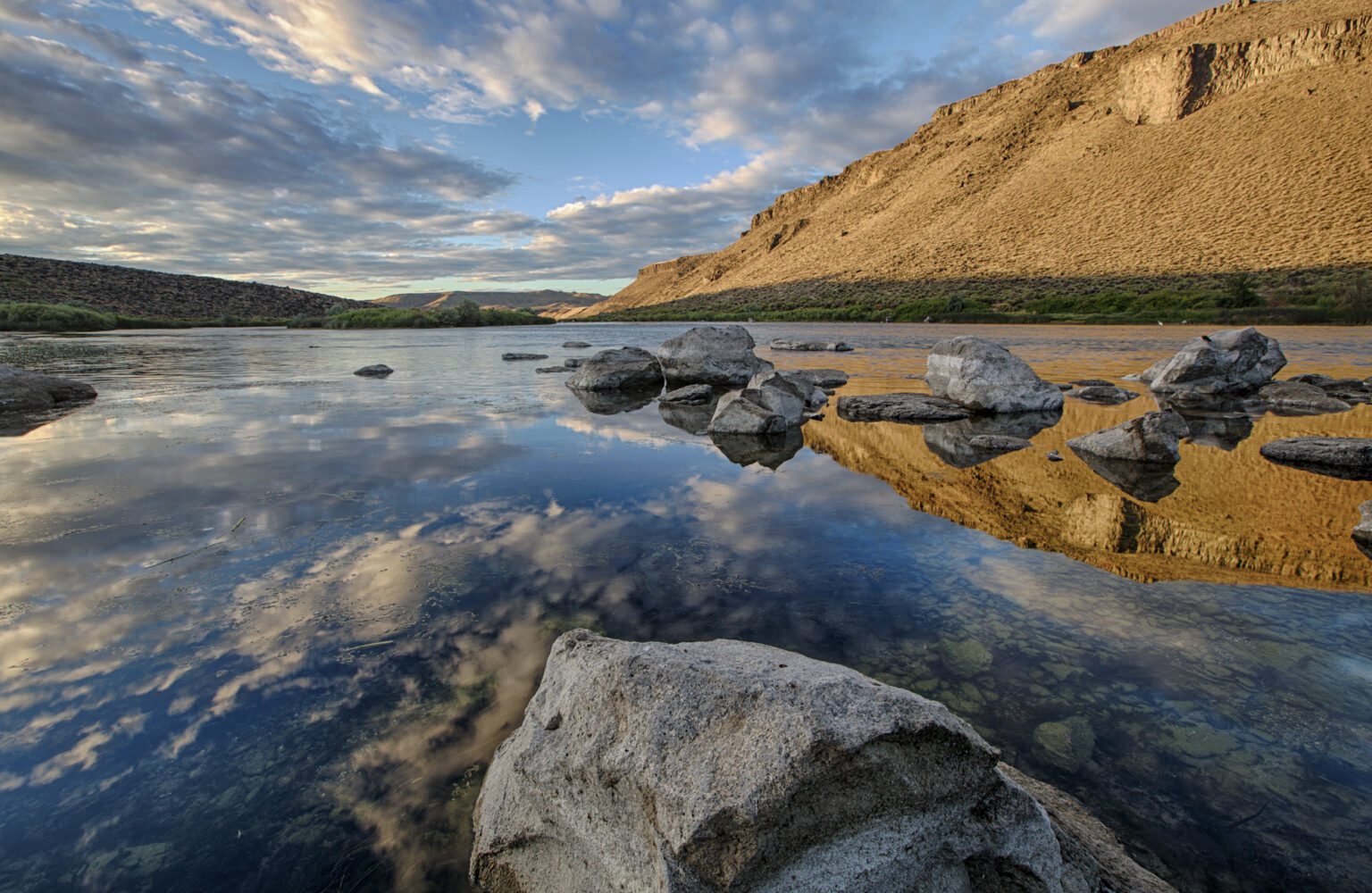The Bureau of Land Management’s final ruling on the Lava Ridge Wind Project was released on Friday, allowing LS Power to proceed with a scaled-down version of the original plan.
Almost half the size of the original plan, the alternative covers 104,000 acres northeast of Twin Falls and has 241 turbines up to 660 feet high.
Notwithstanding the project’s scale decrease, the Lava Ridge Wind Project has emerged as one of Idaho’s most contentious environmental concerns in recent years, illustrating conflicts between the preservation of historic places, the advancement of clean energy, and the interests of ranching and outdoor recreation.
Proponents said that by generating jobs and tax income—including more than $250 million in tax revenue for Lincoln, Jerome, and Minidoka counties over a 30-year period—it would encourage energy independence and strengthen Idaho’s economy.Concerns over its impact on recreation, ranching, wildlife, and the preservation of Minidoka National Historic Site—the location of a former World War II Japanese American internment camp—were raised by opponents, who included all members of Idaho’s congressional delegation as well as numerous lawmakers from the state.
According to a press release from Magic Valley Energy, a subsidiary of LS Power, the Lava Ridge Wind Project’s permitting process started in 2019 and has since been influenced by community and technical expert input. The community expressed concerns about minimizing impacts to wildlife habitat and migration corridors as well as the impact on the immersive experience at Minidoka National Historic Site.
According to a news release from BLM Director Tracy Stone-Manning, the proposal was shaped by hundreds of hours spent in the field and in conference rooms with ranchers, Native American leaders, Japanese American community members, cooperating agencies, and a wide range of individuals with strong ties to the Magic Valley. The final decision that resulted from those conversations strikes a compromise between the preservation of resources that are essential to the Western natural and cultural heritage and the development of clean energy that the nation requires.
According to Luke Papez, senior director of project development at LS Power, the company is happy with the BLM’s decision and is eager to move the project forward into the building and operation phase, when local communities will begin to reap the financial rewards.
In order to allow Idahoans to continue using public lands while work is underway, the business has a phased construction strategy in place. A representative for Magic Valley Energy, Amy Schutte, told the Idaho Capital Sun that preliminary building activities might start in 2025.
According to a news release from Papez, projects like Lava Ridge are essential to powering everything from homes to small companies and American industrial areas and to help keep the lights on.
Minidoka survivors’ descendants and Japanese Americans criticize the wind project
One of the biggest opponents of the Lava Ridge Wind Project has been the Japanese American community, which argues that the project’s construction would detract from Minidoka National Historic Site’s immersive experience. The location was designated a national monument in 2001 and a national historic site in 2008, making it a significant location for healing and conscience.
In comparison to other possibilities, the wind project’s chosen alternative causes the least amount of visual alteration to the surrounding landscape, per the Bureau of Land Management’s record of decision. In order to restrict further development and safeguard cultural assets located on 15,000 acres of public land within the Minidoka National Historic Site, the BLM has also implemented temporary limitations.
Nine miles from the Minidoka National Historic Site, where 13,000 Japanese Americans and Alaska Natives were detained during World War II, the project will still be constructed.
Following the bombing of Pearl Harbor in 1942, President Franklin D. Roosevelt signed an executive order directing the forcible evacuation of Japanese Americans to internment camps, including Minidokawa as one of ten relocation centers. An estimated 120,000 Japanese Americans were forcibly arrested as a result of the order, their assets were frozen, and they were relocated to remote locations throughout the United States.
Longtime member of the Minidoka Pilgrimage Planning Committee and descendant of Minidoka, Erin Shigaki, stated that although the committee is happy with the BLM’s decision to scale back the project and postpone applications for solar and wind projects close to Minidoka, she said the project’s effects on the Japanese American community are intolerable.
According to Shigaki’s press release, “We have a responsibility to our ancestors, our children, and future generations to make sure that stories of Japanese Americans being forcibly incarcerated are not erased by so-called clean energy.” It is not clean energy to place wind projects over the widespread objections of our community and local communities, as well as inside the viewshed of sacred territory.
A volunteer-run group of survivors, descendants, and allies, the Minidoka Pilgrimage Planning Committee offers chances to commemorate and heal individuals of the Japanese American community who were affected by the World War II internment camps. Mary (Tanaka) Abo and other Minidoka survivors are urging American lawmakers to adopt long-term safeguards for Minidoka.
The enormous wind turbines will undoubtedly disrupt the entire immersive experience of being wrongfully expelled into a desert prison camp for pilgrims and tourists visiting Minidoka, according to Abo’s news release. All Americans should have permanent protection for Minidoka since it is a significant part of American history.
Elected authorities in Idaho say they will keep fighting the project.
The congressional delegation from Idaho has continuously opposed the Lava Ridge Wind Project, and in 2023 they even presented legislation to halt its development.
U.S. Senator Jim Risch, a Republican from Idaho, claimed Friday that the BLM’s decision constituted an abuse of our public lands.
Risch stated on X that the Lava Ridge ruling today is in direct opposition to the wishes of the people of Idaho. The Biden-Harris White House is not listening to the uproar from Idahoans and the larger Japanese American community. Rather, the last days of this administration will be spent trying to cause irreparable harm to the Minidoka National Historic Site and Southern Idaho.
Similar to Risch, Idaho Republicans U.S. Sen. Mike Crapo and U.S. Rep. Mike Simpson expressed on social media that the BLM’s clearance of the project ignores the concerns of Idahoans and that they are eager to discuss the proposal with the incoming Trump Administration.
Ral Labrador, the attorney general of Idaho, also denounced the scheme.
Labrador stated in a statement that Idaho has made its opposition to this project extremely plain. Notwithstanding the harm to Idaho farms, ranches, rural communities, agricultural aviation, water supplies, wildlife, and historical sites, the Biden Administration is proceeding with the Lava Ridge project, which is a gem in its Green New Deal crown. We will continue to oppose this attempt to flagrantly disregard Idahoans’ opinions.
GET THE HEADLINES FOR THE MORNING.
Note: Every piece of content is rigorously reviewed by our team of experienced writers and editors to ensure its accuracy. Our writers use credible sources and adhere to strict fact-checking protocols to verify all claims and data before publication. If an error is identified, we promptly correct it and strive for transparency in all updates, feel free to reach out to us via email. We appreciate your trust and support!


